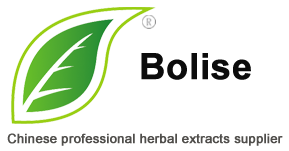汤
A decoction is a method of extraction by boiling of dissolved chemicals, or herbal or plant material, which may include stems, roots, bark and rhizomes.煎剂是通过煮沸溶解的化学物质或草药或植物材料(可能包括茎,根,树皮和根茎)而提取的方法。 Some 'teas' are decoctions.一些“茶”是汤。 Likewise, the term is used colloquially in South India to refer to black coffee prepared by the traditional method.同样,该词在印度南部俗称“黑咖啡”,是指通过传统方法制备的黑咖啡。 Decoctions, however, differ from most teas, infusions, or tisanes, in that decoctions are usually boiled.但是,煎药与大多数茶,泡茶或汤药不同,因为煎药通常是煮沸的。
在啤酒厂中使用
Decoction mashing is the traditional method used in many breweries.汤液糖化是许多啤酒厂使用的传统方法。 It was used out of necessity before the invention of thermometers allowed simpler step mashing.在温度计的发明允许更简单的步骤糖化之前,它是不必要使用的。 But the practice continues for many traditional beers because of the unique malty flavor it lends to the beer;但是,由于许多传统啤酒会给啤酒带来独特的麦芽味,因此这种做法仍在继续。 boiling part of the grain results in Maillard reactions leading to malty flavors.谷物的沸腾部分导致美拉德反应,导致麦芽味。 The first wort hops method (FWH) involving addition of hops to the boiler at the first step of sparging lends a bitter and complex aroma to beers .第一种麦芽啤酒花方法(FWH)涉及在喷射的第一步将啤酒花添加到锅炉中,给啤酒带来苦味和复杂的香气。
用于草药
In herbalism, decoctions are usually made to extract fluids from hard plant materials such as roots and bark.在草药学中,通常采用汤剂从坚硬的植物材料(例如根和树皮)中提取液体。 To achieve this, the plant material is usually boiled for 8–10 minutes in water.为此,通常将植物材料在水中煮沸XNUMX–XNUMX分钟。 It is then strained.然后将其拉紧。

 亚洲生物医药研究院
亚洲生物医药研究院 博利斯有限公司
博利斯有限公司

